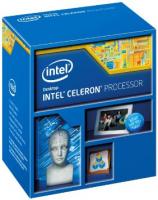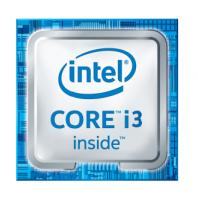| Built-in processor | Y |
| Processor manufacturer | Intel |
| Processor family | Intel® Core™ i9 |
| Processor generation | 13th gen Intel® Core™ i9 |
| Processor model | i9-13900K |
| Processor cores | 24 |
| Processor threads | 32 |
| Processor boost frequency | 5.8 GHz |
| Processor cache | 36 MB |
| L2 cache | 32 MB |
| Thermal Design Power (TDP) | 125 W |
| CPU configuration (max) | 1 |
| Memory slots type | SO-DIMM |
| Number of memory slots | 2 |
| Number of DIMM slots | 2 |
| Maximum internal memory | 64 GB |
| Supported memory types | DDR-SDRAM |
| Memory channels | Dual-channel |
| ECC | N |
| Supported storage drive types | HDD & SSD |
| Storage drive sizes supported | M.2,2.5 |
| SSD form factor | M.2 |
| Storage drive interface | PCI Express, Serial ATA III |
| Number of storage drives supported | 5 |
| RAID levels | 0, 1 |
| On-board graphics card | N |
| Graphics card family | Intel |
| On-board graphics card model | Intel UHD Graphics 770 |
| Maximum resolution | 7680 x 4320 pixels |
| Number of displays supported | 3 |
| Built-in speaker(s) | N |
| Ethernet LAN | Y |
| Wi-Fi | Y |
| Top Wi-Fi standard | Wi-Fi 6E (802.11ax) |
| Wi-Fi standards | Wi-Fi 6E (802.11ax) |
| WLAN controller model | Killer Wi-Fi 6E AX1690 |
| Bluetooth | Y |
| USB 3.2 Gen 1 (3.1 Gen 1) Type-A ports quantity | 2 |
| HDMI ports quantity | 1 |
| Ethernet LAN (RJ-45) ports | 2 |
| USB 3.2 Gen 2 (3.1 Gen 2) Type-A ports quantity | 6 |
| USB 3.2 Gen 2 (3.1 Gen 2) Type-C ports quantity | 1 |
| HDMI version | 2.1 |
| Microphone in | Y |
| Headphone outputs | 1 |
| Combo headphone/mic port | Y |
| Number of SATA III connectors | 4 |
| M.2 card slot (wireless) | Killer™ Wi-Fi 6E AX1690i |
| USB ports quantity | 11 |
| M.2 card slot (storage) | 2 via PCH + 1 via CPU (NVMe) |
| Thunderbolt 4 ports quantity | 2 |
| PCI Express slots version | 5, 4.0 |
| Chassis type | Desktop |
| Product colour | Black |
| Cooling type | Active |
| Product type | PC barebone |
| On/off switch | Y |
| LED indicators | Y |
| Cable lock slot | Y |
| Cable lock slot type | Kensington |
| ARK ID | 229782 |
| Certification | IEC/EN/UL 60950-1 IEC/EN/UL 62368-1 FCC Part 15B/15C/15E CISPR/EN 55032/55024 ICES-003 VCCI 32 BSMI CNS 13438 KN 32/35 AS/NZS CISPR 32 EN 300 328 EN 301 893 EN 300 440 EN 301 489-1/3/17 EN 62311 AS/NZS 4268 AS/NZS 2772.2 ARPANSA |
| Motherboard chipset | Intel Z690 |
| Number of processors supported | 1 |
| BIOS type | EEPROM |
| Audio output channels | 7.1 channels |
| Windows operating systems supported | Windows 11 x64 |
| Linux operating systems supported | Y |
| Compatible operating systems | Windows 11 (64-bit) |
| Operating system installed | N |
| Commodity Classification Automated Tracking System (CCATS) | G157815L2 |
| Export Control Classification Number (ECCN) | 5A992C |
| Embedded options available | N |
| Intel Rapid Storage Technology | Y |
| Intel® AES New Instructions (Intel® AES-NI) | Y |
| Intel Virtualization Technology for Directed I/O (VT-d) | Y |
| Intel VT-x with Extended Page Tables (EPT) | Y |
| Intel 64 | Y |
| Idle States | Y |
| Enhanced Intel SpeedStep Technology | Y |
| Intel Flex Memory Access | Y |
| Intel Trusted Execution Technology | Y |
| Execute Disable Bit | Y |
| Intel Stable Image Platform Program (SIPP) | Y |
| Intel® Optane™ Memory Ready | Y |
| Intel® Platform Trust Technology (Intel® PTT) | Y |
| Intel Virtualization Technology (VT-x) | Y |
| Sustainability certificates | ENERGY STAR, RoHS |
| Introduction year | 2022 |
| Warranty period | 3 year(s) |
| Harmonized System (HS) code | 8471500150 |
| Power supply type | Internal power supply unit |
| Power supply | 750 W |
| Number of power supply units | 1 |
| Operating temperature (T-T) | 0 - 35 °C |
| Storage temperature (T-T) | -20 - 40 °C |
| Width | 337 mm |
| Depth | 318 mm |
| Height | 129 mm |
| Power cord included | Y |
| Additional headers | FRONT_PANEL |
| Number of SATA connectors | 4 |
| HDD size | 2.5" |
| Status | Launched |
| Product family | Intel NUC |
| Product series | Intel NUC kit |
| Product codename | Raptor Canyon |
| Launch date | Q4'22 |

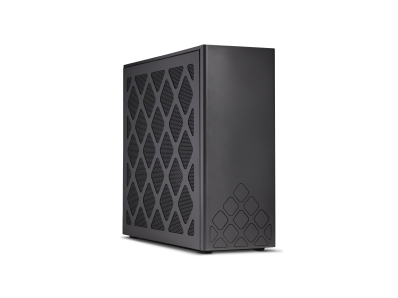
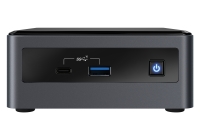
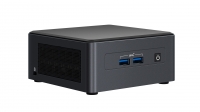
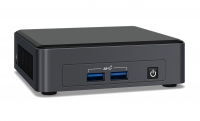




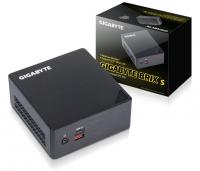
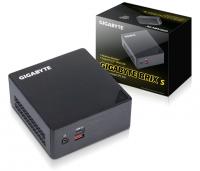



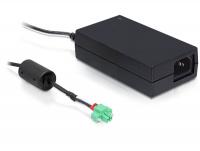
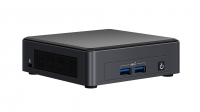
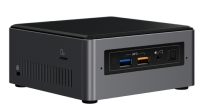
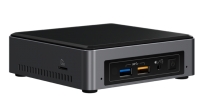
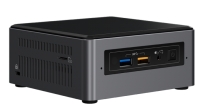
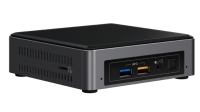
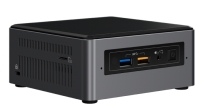
![BAREBONE INTEL® NUC6I5SYH [6.Gen.] BAREBONE INTEL® NUC6I5SYH [6.Gen.]](https://www.dcp.lv/56604-home_default/barebone-intel-nuc6i5syh-6gen.jpg)
![BAREBONE INTEL® NUC6I5SYK [6.Gen.] Small BAREBONE INTEL® NUC6I5SYK [6.Gen.] Small](https://www.dcp.lv/56602-home_default/barebone-intel-nuc6i5syk-6gen-small.jpg)
